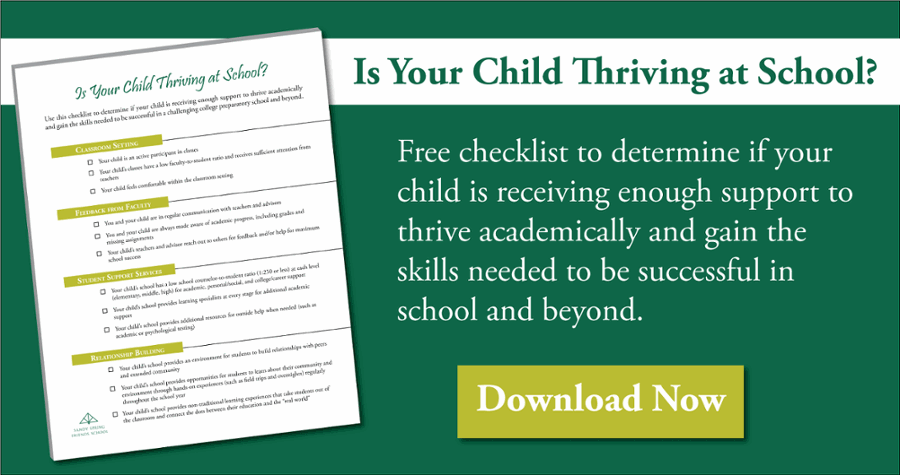
What do you most remember from your high school education? What skills do you use every day that you learned in high school? For most of us, we do not recall much of the academic content. How many specific math classes can you recall from high school, out of the hundreds you likely attended? Solving geometric proofs, the causes of the Panic of 1837, and the purpose of the Krebs cycle tend to fade over time. Instead, we remember an especially helpful teacher, a great social experience, or a formative event that shaped who we are. At Sandy Spring Friends School (SSFS), Intersession provides that kind of memory for many of our graduates.
This is not an accident. Intersession is explicitly designed to get students out of the classroom and into “the real world,” putting classroom learning into action, with their peers, under the guidance of invested teacher-mentors. “I remember very few of the assignments given to me in my classes at SSFS, but I can recount virtually every day’s activities during the various intersession trips on which I was a participant,” recalled ‘70’s-alum-now-teacher Bim Schauffler. Schauffler credits Intersession, and his SSFS experiences as important elements shaping his path into adulthood. English teacher Miriam Rock put it this way: “My Intersession trip allowed students to build relationships with peers, to learn each other's stories, across the normal lines between social groups in school. Students are learning what it means to be a person. Removed from the structure of school, students are free to see each other as creators and collaborators. On our service trip to Logan, West Virginia, students learned what service and stewardship really mean. These are things that can’t be learned from slides and lectures.”
Briefly, what is Intersession? Intersession is one signature example of ways that SSFS teachers in all grade levels seek to validate and reinforce the content of the classes and the character of the School though real-world experiences. As the name implies, Intersession is a week in the early spring when all SSFS high school students and faculty are off campus participating in one of a wide range of experiences or trips. It might be a local service experience, a physical challenge on a trail or rock face somewhere, or an intercultural experience some place around the globe. Intersession is specifically designed to present students with some kind of challenge - physical, cultural, emotional, or cognitive. Intersession is not a vacation, though, to a person, students describe Intersession as one of the best parts of high school. History teacher Elizabeth Anderson Glabus described an intellectually challenging visit to a Vietnamese history museum during the spring 2016 trip she helped lead: “We tend to describe the Vietnam war from the perspective of American GI’s and American politics. Seeing how the Vietnamese described the war as a decades-long struggle for independence from French colonialism was compelling for students. They were able to see the world through another’s viewpoint, in contrast to the prior one-sided viewpoint. We ate dinners with people who in the past we were told were our enemies. It was an important perspective for students to experience, to put yourself in someone else’s shoes.”
Educational research has consistently echoed what we know intuitively: Students need to experience what they learn in the classroom in order for it to make sense, for the lessons to have relevance. Moreover, “social learning” (experiences that teach students how to collaborate, listen to different viewpoints, advocate for causes and priorities, and be self-directing) is ever more vital today in a world that is increasingly international, diverse, and interdependent. The Collaborative for Academic, Social, and Emotional Learning identifies five critical competencies that students need to acquire: (1) Self-Awareness, (2) Self-Management, (3) Social Awareness, (4) Relationship Skills, and (5) Responsible Decision-Making. These are the skills students learn and practice through programs like Intersession.
Students need social skills, independence skills, and values clarifying experiences as much as they need language literacy, math knowledge, or technology skills. Such experiences are not luxuries or elective experiences; they are essential components of effective education. Like all learning, students need to experience situations where these skills are put to the test beyond the classroom. Students need experiences that are are real, not just “realistic.”

